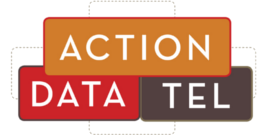Holiday Charity Scams Are on the Rise—Here’s How to Avoid Them

Scammers home in on generosity year-round, but just like most people, they love the holidays. Sentimentality, kindness, empathy, and giving increase during the holidays. That’s when they ramp up their efforts. Given the current economic climate and the fact that it is holiday season, we anticipate an uptick in attempts to scam people via weaponized generosity.
Not too many years back, a large tele-funding fraud was uncovered and brought down when authorities exposed the criminals behind it. They had made 1.3 billion deceiving donation calls and collected over $110 million from well-meaning, unsuspecting donors, according to the FTC.
During that same time, Cornell University researchers found that more than 800 social media accounts operated donation scams, pushing victims toward fake fundraisers on platforms like Facebook, X, and Instagram.
Small businesses stand to suffer significantly with even just one small misstep in charitable giving. It’s more than just a loss of money— it can connect your name to fraud, tarnish your reputation and ruin trust with clients, partners and the community in which you operate.
That isn’t to say you should stop being charitable altogether. In fact, now more than ever, I implore you to extend kindness and generosity when we seem to be at odds with our neighbors. The world could use some kindness right now.
At the same time, it’s important to learn how to spot red flags, like you would on a first date. If you’re deliberate in discerning potential warning signs, you can still give charitably without risking your business or holiday cheer.
Before you give to charities or fundraisers, ask
A legitimate fundraiser should answer these clearly:
- Who is behind the fundraiser, and what’s their connection to the recipient?
- How will the money be used, and on what timeline?
- Who controls withdrawals, and can you trace the funds easily?
- Do friends or family publicly support the campaign?
If any of those are vague or missing, ask for clarification first. Silence or evasive answers are red flags.
Red Flags That Often Signal Fundraising Scams
 If you see any of these, pause and investigate:
If you see any of these, pause and investigate:
- False or misleading details on the fundraiser page
- Money not used as promised within a reasonable time frame
- Impersonating someone else or copying another’s story
- Stories that feel “too good to be true” or overly emotional
When you spot multiple warning signs, report the fundraiser and don’t donate.
Vetting Charities (Not Just Crowdfunds)
Even established charities can have sketchy practices. Here’s what to look for:
- Look for full program details, budgets, and yearly reports
- Check how much goes to the cause vs. overhead
- Google the charity with words like “scam” or “fraud”
A lack of detail or negative reviews should spark caution.
Common Tactics Charity Scammers Use
Watch out for:
- Requests for gift cards, wires, or crypto – real charities take cards or checks
- Websites without “https” – no ‘s’ means your data isn’t secure
- Pressure to give immediately – urgency is a scam tactic
- Claims you already donated – always verify before paying
Scammers are clever. Even polished websites and thoughtful-sounding headlines may hide malicious intent.
Why This Is Important For Your Business
Whether publicly or privately, when your business donates to charity, that generosity is tied to your name and becomes part of your brand. If your business donates to a scam, or an employee does with your company name, it will put your brand front and center in a fraud story.
Worse, the same tricks fraudsters use in charity scams — urgency, impersonation, phony websites — also target businesses. They show up in phishing, fake invoices, and wire transfer scams. Teaching your team to spot fake fundraisers is really training them to recognize fraud everywhere.
How To Protect Your Business (And Your Goodwill)
These steps help ensure your giving is safe and smart:
1. Set a Donation Policy: Define how and where your business donates, with clear approval rules.
2. Train Employees: Teach your team to verify fundraisers before donating under your name.
3. Use Trusted Channels: Donate directly via official charity websites, not random links.
4. Maintain Transparency: Confirm the charity’s legitimacy if you publicize your donation.
5. Monitor Results: Follow up to ensure donations are used as promised.
Keep Your Holidays Generous – Not Risky
The holidays are a chance to give back, not a season for regret. Smart checks and policies protect your money and your reputation.
Want to make sure your team knows how to spot these scams – whether it’s a fake fundraiser, a phishing e-mail or a bogus payment request?
Book your free discovery call here
Because the best gift you can give your business (and your community) is trust that cannot be taken.

